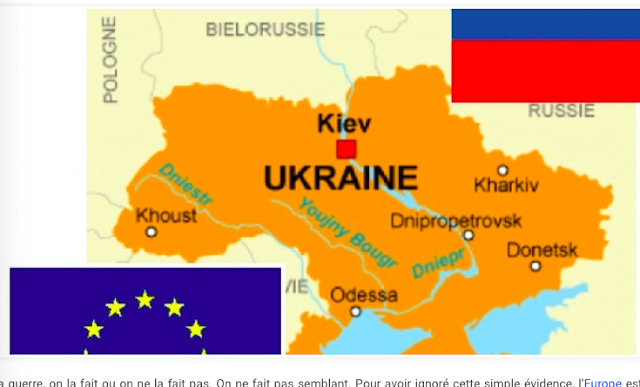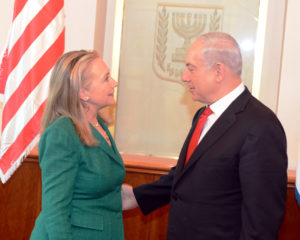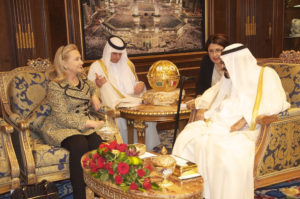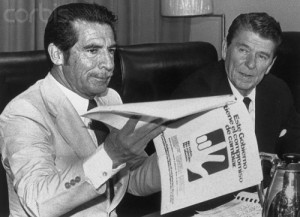- Joined
- Oct 1, 2015
- Messages
- 3,166
- Reactions
- 498
- Points
- 113
Home > US > Europe lost the US-Russian war, two years ago already.
counter-sanctions Europe US
Europe lost the US-Russian war, two years ago already.

reseauinternational.net, August 17, 2014
Translated from French by Tom Winter August 17, 2016
Translator's note: Yes, this was written two years ago today, in the wake of the Russian counter-sanctions. Some saw it, even then, and today, well, here we are.
War: you are either at war or you aren't. There is no pretending. For ignoring this simple fact, Europe is in the whirlwind, completely disoriented in search of benchmarks that it no longer has.
The war the US is waging against Russia is a war to the death. Europe, at once actor and at stake, does not want this outcome but, victim of its protective alliances and its historic, though now artificial status, is obliged and even ordered to take sides with its Great Protector. This war is not hers, but she has to do it. Then she makes believe, since both protagonists know the outcome can only be the total defeat of one or the other, reflected either in the full and complete submission of Russia or the US loss of any hegemony.
In this struggle of Titans, a fighter undecided, as is Europe, is quickly submerged. This is seen since the first Russian counteroffensive. Country by country, the European Union gradually manifests hostility to a war against Russia that they did not seek. Voices are rising up to find some kind of armistice. They are only, for now, 7-8 countries that have officially expressed in this direction, but the number is growing. Other countries are not speaking out, but are thinking it. And these refractory countries surely represent the majority in the EU.
We are witnessing something curious in the EU, similar to what one finds in all European countries: the majority counts for nothing. Only a small elite directs the whole thing, and decides and acts for all.
But still, after the implementation of Moscow's counter-sanctions, and after the last gesture of humiliating and fruitless honor with Russian partners, EU are moving towards looking for some kind of armistice.
For this coup, one thing is clear: the Great Protector is conspicuously absent from his subscribers. What could he do, anyway? Absorb all Europe's unsold goods? Subsidize? Impossible, especially at a time when, for various treaties, including TAFTA, they seek to rob even their "friends." Europeans could yet present the bill to Uncle Sam, because after all, it is for him they did everything that led them into this situation. But they did not dare and preferred to try to intimidate or cajole the ones smaller than themselves. It had to lead to comical situations. Imagine, for example France, shamelessly asking Evo Morales to forget the incident of his hijacking and agree to give a hand to the Europe that treated him like a nobody. To die laughing.
In case of some armistice, the losses will still be substantial, and some of them just plain irreversible. Because this time, unlike all the treaties of Versailles and others, where the assignments are made after the hostilites, the redistribution has already been done, and without them. If Russia resumed imports of products it had banned, EU will be forced to get in line after those who are new to the Russian market with agreements set in concrete, agreements that the Russians will never revoke.
In one way or another, Europe will pay for having sold its soul to the devil 70 years ago and perhaps even before. We can, however, recognize extenuating circumstances. The devil took advantage of a situation of extreme weakness to buy it cheap.
If the Armistice occurred today, Europe would come out reasonably well, and perhaps would come up a new era of prosperity thanks to a new global dynamic.
Otherwise, an analogy comes to mind: Ukraine. Ukraine had its interests in the East and practically none in the West. But the West has forced Ukraine to scuttle its own interests to join the western bloc, creating the secession of the southeastern part of the country. If the spirit of war persists in Europe, there is a safe bet that some countries will follow and more could secede, which could lead to an "internal" war of the same type as that which is going on in Donbass.
Keep in mind that, as for Ukraine, no dissent will be tolerated by the United States. The only chance Europe has to get out of this mess is to put up a blockage on behalf of their own citizens' interest and against the advice of agents like Barroso and others.
counter-sanctions Europe US
Europe lost the US-Russian war, two years ago already.

reseauinternational.net, August 17, 2014
Translated from French by Tom Winter August 17, 2016
Translator's note: Yes, this was written two years ago today, in the wake of the Russian counter-sanctions. Some saw it, even then, and today, well, here we are.
War: you are either at war or you aren't. There is no pretending. For ignoring this simple fact, Europe is in the whirlwind, completely disoriented in search of benchmarks that it no longer has.
The war the US is waging against Russia is a war to the death. Europe, at once actor and at stake, does not want this outcome but, victim of its protective alliances and its historic, though now artificial status, is obliged and even ordered to take sides with its Great Protector. This war is not hers, but she has to do it. Then she makes believe, since both protagonists know the outcome can only be the total defeat of one or the other, reflected either in the full and complete submission of Russia or the US loss of any hegemony.
In this struggle of Titans, a fighter undecided, as is Europe, is quickly submerged. This is seen since the first Russian counteroffensive. Country by country, the European Union gradually manifests hostility to a war against Russia that they did not seek. Voices are rising up to find some kind of armistice. They are only, for now, 7-8 countries that have officially expressed in this direction, but the number is growing. Other countries are not speaking out, but are thinking it. And these refractory countries surely represent the majority in the EU.
We are witnessing something curious in the EU, similar to what one finds in all European countries: the majority counts for nothing. Only a small elite directs the whole thing, and decides and acts for all.
But still, after the implementation of Moscow's counter-sanctions, and after the last gesture of humiliating and fruitless honor with Russian partners, EU are moving towards looking for some kind of armistice.
For this coup, one thing is clear: the Great Protector is conspicuously absent from his subscribers. What could he do, anyway? Absorb all Europe's unsold goods? Subsidize? Impossible, especially at a time when, for various treaties, including TAFTA, they seek to rob even their "friends." Europeans could yet present the bill to Uncle Sam, because after all, it is for him they did everything that led them into this situation. But they did not dare and preferred to try to intimidate or cajole the ones smaller than themselves. It had to lead to comical situations. Imagine, for example France, shamelessly asking Evo Morales to forget the incident of his hijacking and agree to give a hand to the Europe that treated him like a nobody. To die laughing.
In case of some armistice, the losses will still be substantial, and some of them just plain irreversible. Because this time, unlike all the treaties of Versailles and others, where the assignments are made after the hostilites, the redistribution has already been done, and without them. If Russia resumed imports of products it had banned, EU will be forced to get in line after those who are new to the Russian market with agreements set in concrete, agreements that the Russians will never revoke.
In one way or another, Europe will pay for having sold its soul to the devil 70 years ago and perhaps even before. We can, however, recognize extenuating circumstances. The devil took advantage of a situation of extreme weakness to buy it cheap.
If the Armistice occurred today, Europe would come out reasonably well, and perhaps would come up a new era of prosperity thanks to a new global dynamic.
Otherwise, an analogy comes to mind: Ukraine. Ukraine had its interests in the East and practically none in the West. But the West has forced Ukraine to scuttle its own interests to join the western bloc, creating the secession of the southeastern part of the country. If the spirit of war persists in Europe, there is a safe bet that some countries will follow and more could secede, which could lead to an "internal" war of the same type as that which is going on in Donbass.
Keep in mind that, as for Ukraine, no dissent will be tolerated by the United States. The only chance Europe has to get out of this mess is to put up a blockage on behalf of their own citizens' interest and against the advice of agents like Barroso and others.





